IN ENGLISH, the names of Irish counties may seem like they have no meaning- this is not the case.
All of the counties on the island of Ireland are derived from Irish phrases or words which give the background to each area, from describing the geographical location or referencing its founder, to naming its rivers or trees or describing its ecosystem.
Here are the 32 counties of Ireland, their original Irish names and the meaning behind them.
Armagh
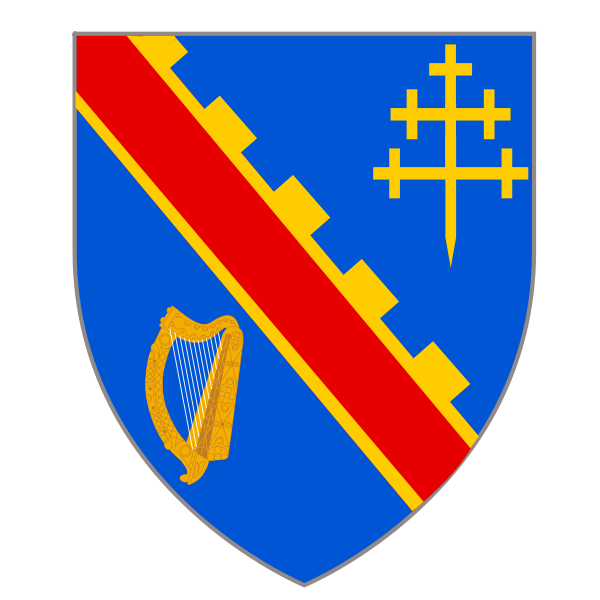
Ard Mhacha in Irish, the name means 'The height of Macha', referring to the ancient Irish Goddess, Macha. A Goddess of sovereignty based in the Province of Ulster, Macha is associated with the land, fertility, kingship, war and horses.
Antrim
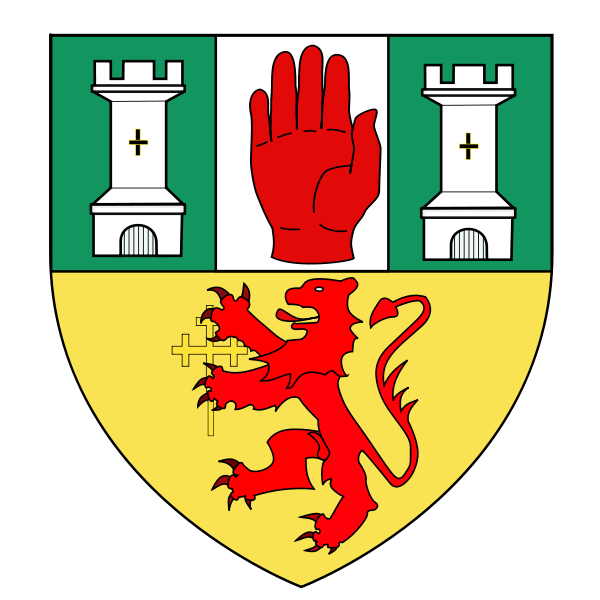
Aontroma or Aontroim in Irish, the name translates as 'Lone ridge' and comes from its former County town, Antrim Town-- now, however, the capital of Antrim is Belfast.
Carlow
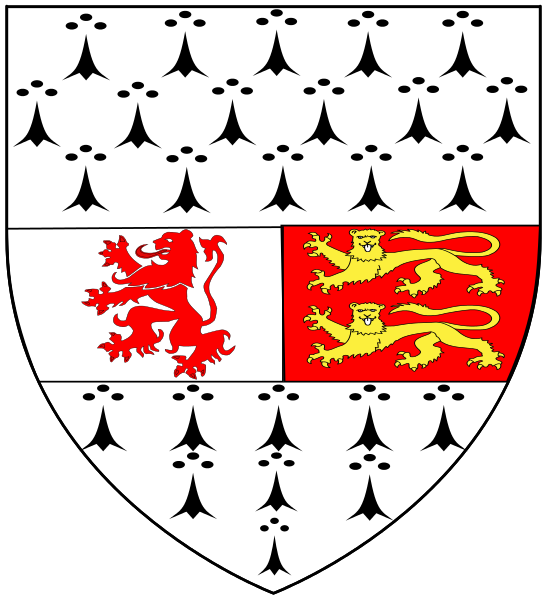
Ceatharlach in Irish, the name is believed to come from the translation 'four lakes' (Ceithre locha) or 'city on the lakes' (Cathair na lochanna), however it is unclear which lakes this ancient name could be referring to.
Clare

An Clár in Irish, the name was once thought to refer to the de Clare noble family who settled in the county, but instead refers to the Irish word for plank; a board was placed across the river Fergus to allow access to an area which became known as An Clár, or Clare.
Cavan
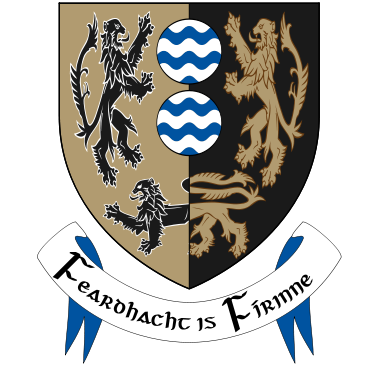
An Cabhán in Irish, meaning 'the hollow' or 'a hollow place', however in some parts of Ulster it might be taken to mean a hard round hill.
Cork
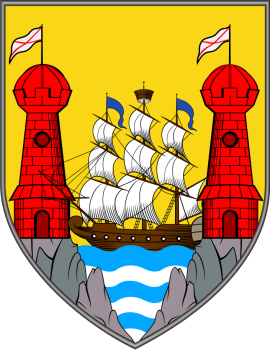
Corcaigh in Irish, from the word corcach meaning 'marsh' or 'marshy place', founded in the 7th century by St Finbarr,who built an abbey there, which flourished-- until the invasion of the Vikings in 820.
Derry
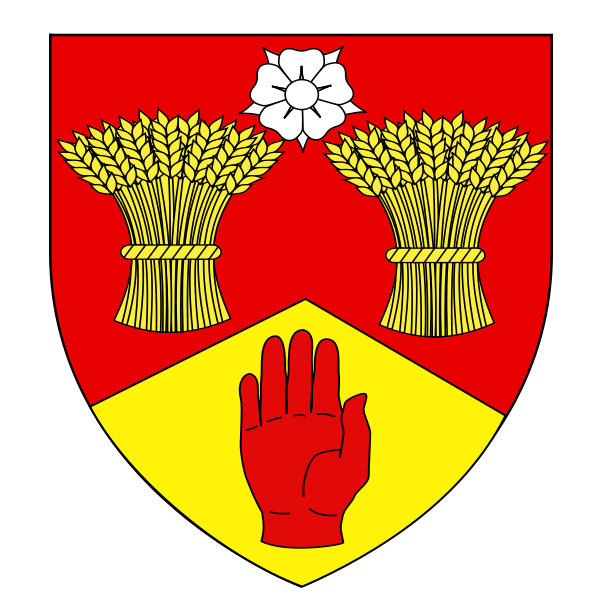
From the Old Irish word Daire, and later the Irish Doire, meaning 'oak grove', or in this case, an oak grove on an island surrounded by water or bogland-- which is what Derry used to be before it was established as a city and county.
Donegal
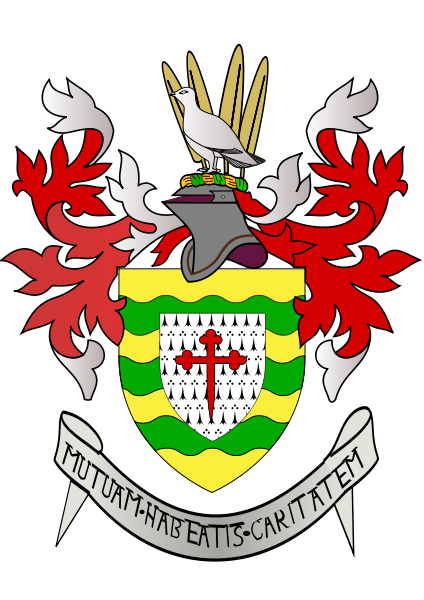
Dún na nGall in Irish, the name comes from the phrase 'fort of the foreigners', referring to the Vikings who invaded in the 9th century. Before this, it was known as Tír Chonaillí, meaning 'Conall's Land', a 5th-century Irish king.
Down
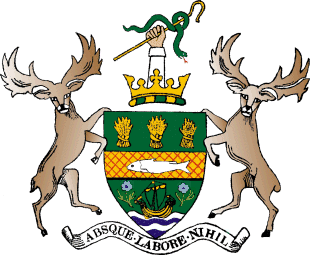
From the Irish An Dún, meaning a fort or 'fortified place', similar to Donegal's Dún na Gall. County Down, like much of Ireland, witnessed many battles, and it's name reflects that.
Dublin

Now Baile Átha Cliath in Irish, or Contae Átha Cliath, the phrase means 'town of the ford of the hurdles', named after four main routeways which converged at a crossing place made of hurdles of interwoven saplings. The anglicised Dublin comes from Dubh Linn, or 'Black pool'.
Fermanagh
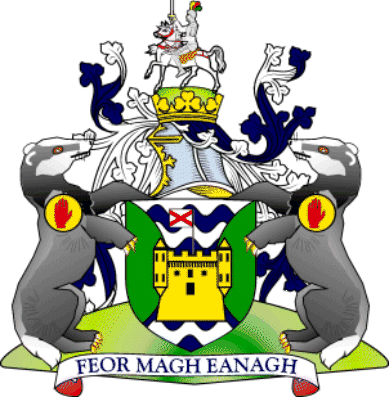
From Fir Manach meaning 'The men of Manach', which may come from the Old Irish Magh Eanagh, 'Country of the lakes'. This would mean the County name means 'Men of the country of the lakes'.
Galway
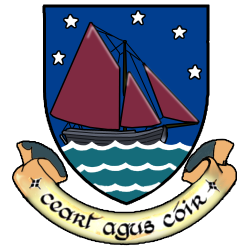
From Gaillimh, meaning 'stony river', the city and county was named after the river itself-- once known as the Gaillimh, the famous river which runs through the city is now called the River Corrib.
Kerry

Ciarraí in Irish, the county was named after the Ciarraige family, itself a phrase meaning 'people of the Ciar'. Ciar was the 'illegitimate' son of the King of Ulster, who was banished from Ulster and arrived as a refugee in the south of the country in an area which would become known as Ciarraí.
Kildare
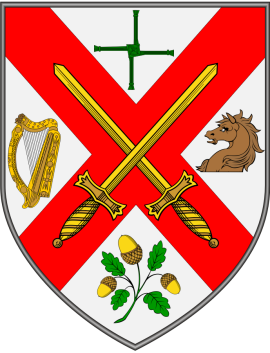
From the Irish Cill Daire, from the Old Irish 'Church of the Oak', just as Derry/Doire means 'Oak grove'. It comes from the myth of St Brigid, who established Kildare under an oak tree when she placed her cloak on the ground and it spread for miles on end.
Kilkenny
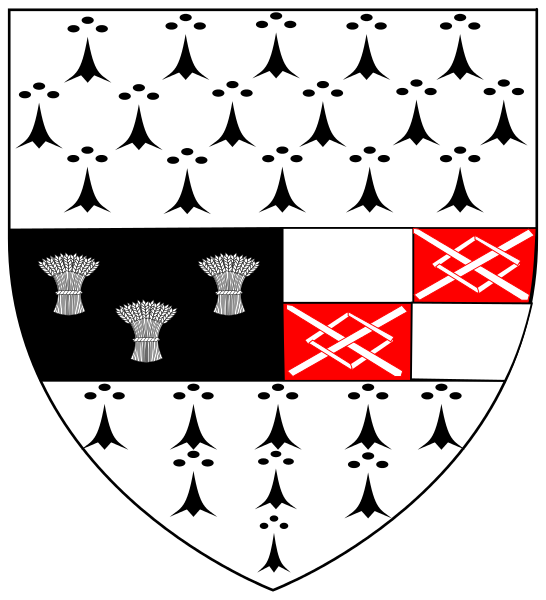
Cill Chainnigh in Irish, the phrase translates in English to 'church of Cainnech', referring to the Irish abbot and Saint, one of the Twelve Apostles of Ireland who helped establish Christianity in Ireland.
Laois

Named from the Old Irish Loígis, an ancient Irish tribe named after the first Chieftain, Loígseach, who himself may have been named after the Irish word lóeg meaning 'favourite' and secha meaning ''above and beyond'.
Leitrim

Liatroma in Irish, from the phrase Liath Druim, meaning 'grey ridge'. The county was named after the village of Liath Druim, a stronghold of the Ó Ruairc noble family.
Limerick
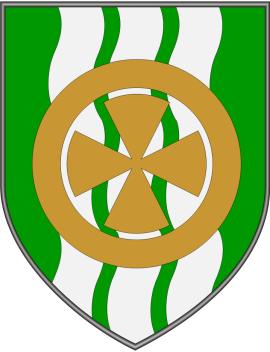
From Luimneach in Irish, which may mean 'bare spot', possibly from the word loimneach meaning 'bar marsh'-- when invaded by Vikings, it gained the name Hlymekr, which may come from the original name or could be the Old Norse for 'mighty noise'.
Longford

Longfort in Irish from An Longphort meaning 'ship' and 'port', an important market town in old Ireland.
Louth
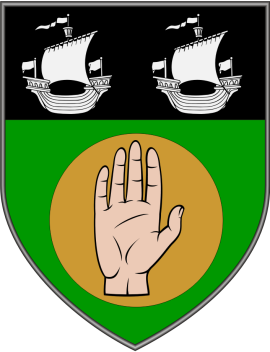
An Lú in Irish, meaning 'less' or 'smaller'-- County Louth is the smallest county in Ireland.
Mayo
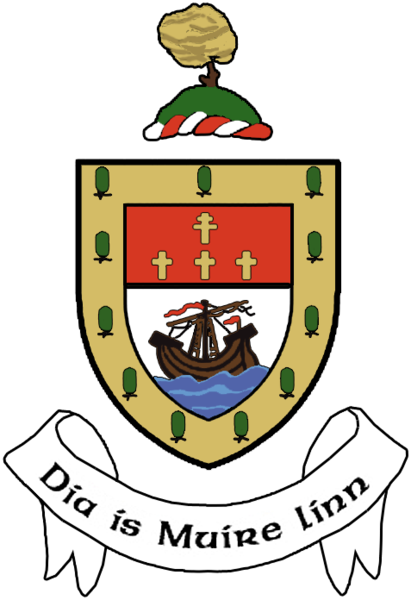
From the Irish Maigh Eó, meaning 'Plain of the yew trees'. The county was named after the town of Mayo which was covered in the trees-- that town is now known as Mayo Abbey.
Meath
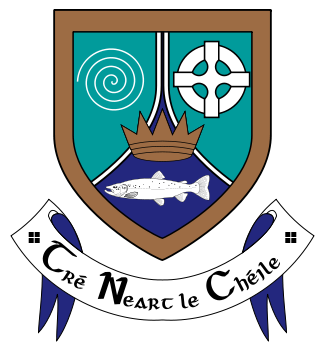
An Mhí in Irish, County Meath was once the historic Kingdom of Meath from the 1st to the 12th Century, and the name comes from the old Irish Midhe meaning 'centre'; the Kingdom was in the centre of Ireland.
Monaghan

Mhuineacháin in Irish, from the phrase meaning 'a thickly overgrown area' or 'a place abounding in little hills', according to Patrick Weston Joyce, a historian who studied the place names of Ireland.
Offaly
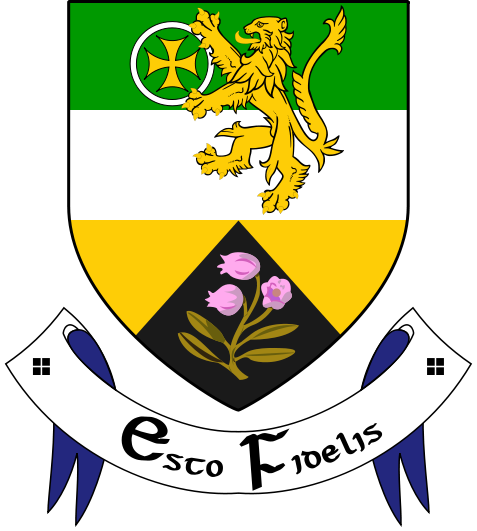
Contae Uíbh Fhailí in Irish, named after the ancient Irish Kingdom of Uí Failghe which existed until the 15th century, named after the legendary king Failge Berraide.
Roscommon
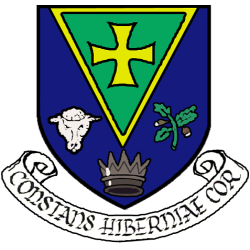
Ros Comáin in Irish, the name comes from a phrase meaning 'Saint Coman's wood', referring to Coman mac Faelchon, an Irish saint and the founder of Roscommon who established a monastery in the area around 550.
Sligo
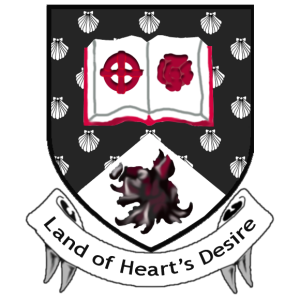
Sligeach in Irish, a phrase which meaning 'abounding in shells'-- this name comes from the coastal town and county's many beaches, as well as the huge amount of shellfish found in the river of the town.
Tipperary
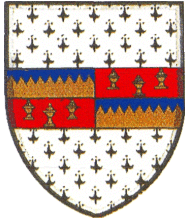
From the Irish Tiobraid Árann, the county is named after Tipperary Town and the river which flows through it. The phrase means 'The Well of Ara', a reference to the River Ara and the well in which it rises.
Tyrone
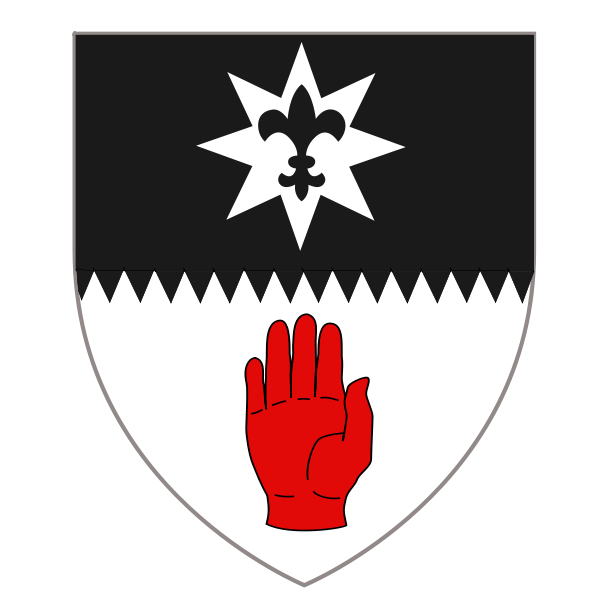
Tír Eoghain in Irish, literally 'Eoghan's land', after the area was conquered by the Cenél nEógain in in Old Ireland. The kingdom once encompassed parts of Derry, Donegal, Fermanagh, Monaghan and Armagh, but their conquests were immortalised in the name Tír Eoghain.
Waterford
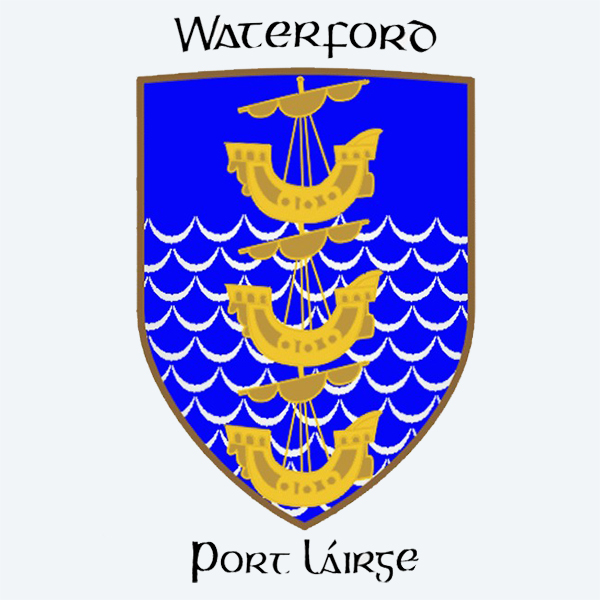
Port Láirge in Irish, which in fact comes from the Old Norse Vedrafjord meaning 'windy ford'. The Irish translation means 'Lárag's port'. The Vikings were driven out of Ireland by the Irish in 902, but made a successful return in 914 after establishing themselves in Waterford.
Westmeath
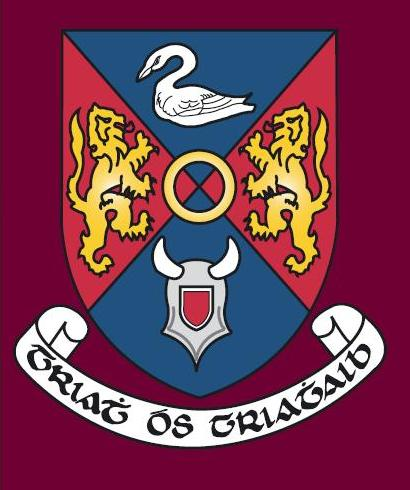
An Iarmhí in Irish, literally meaning 'West middle'. Once a part of the historic and wide-ranging Kingdom of Meath, which itself meant 'middle' due to its geographical location-- Westmeath was split from County Meath in 1543.
Wexford
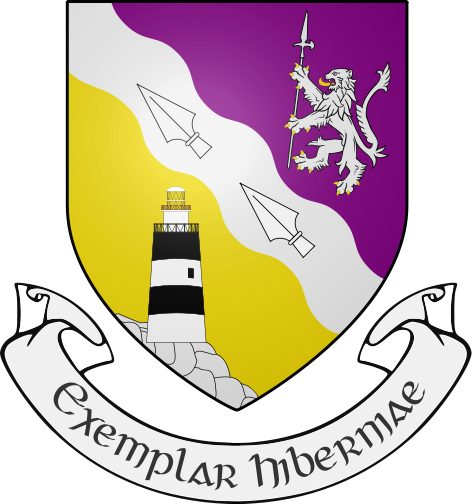
Loch Garman in Irish, a phrase meaning 'Garman's Lake', and named after the myth of Garman Garbh, a local man who supposedly drowned after a powerful enchantress released waters from the River Slaney to create a lake. The English 'Wexford' may come from the Viking's name for the area 'Waesfjord', meaning 'an inlet of mud lands'.
Wicklow
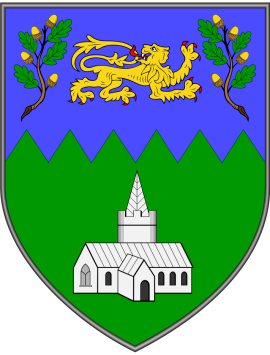
Cill Mhantáin in Irish, meaning, rather ominously, 'Church of the toothless one'. The name comes from a legend which says St Patrick and his followers were attacked by locals, and one one of his party had a tooth knocked out in the fight. When he returned to the area to establish a church, he was referred to as 'toothless one'-- Mantáin. The name 'Wicklow' may have come from the Viking word 'Vykengelo', meaning 'meadow of the Vikings'.

